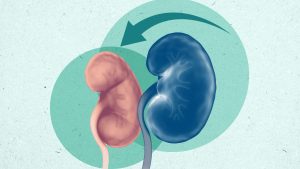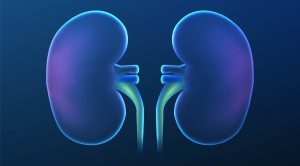Introduction When delving into the intricate world of renal science, the complexities of kidney function come to light, showcasing the organ’s vital role in maintaining homeostasis within the body. From filtration to hormonal regulation, the kidneys perform multifaceted tasks that are crucial for our overall health. Let’s embark on a journey to decode the nuances
Introduction
When delving into the intricate world of renal science, the complexities of kidney function come to light, showcasing the organ’s vital role in maintaining homeostasis within the body. From filtration to hormonal regulation, the kidneys perform multifaceted tasks that are crucial for our overall health. Let’s embark on a journey to decode the nuances of renal science and gain insights into the fascinating functions of these bean-shaped organs.
The Anatomy of the Kidneys
Situated in the posterior part of the abdomen, the kidneys, typically a pair, play a pivotal role in filtering waste from the blood. Their outer layer, the cortex, houses millions of nephrons—the functional units responsible for filtration. Each nephron consists of a renal corpuscle and a tubule, where the intricate process of blood filtration and reabsorption takes place.
Filtration and Waste Management
The nephrons’ primary function involves filtering blood to remove waste products and excess substances while retaining essential components. This process begins in the glomerulus, a network of tiny blood vessels within the renal corpuscle. Here, blood pressure forces fluid, along with waste products like urea and creatinine, out of the blood and into the nephron’s tubule.
Reabsorption and Regulation
While filtration rids the body of waste, reabsorption ensures that vital substances—such as glucose, electrolytes, and water—are retained. The tubules meticulously reabsorb these necessary components back into the bloodstream. Hormones like aldosterone and antidiuretic hormone (ADH) play crucial roles in regulating water and electrolyte balance by influencing reabsorption levels.
Maintaining Blood Pressure
The kidneys contribute significantly to regulating blood pressure. They achieve this through a complex interplay of hormones and mechanisms that influence blood volume and vessel constriction. Renin, released by specialized cells in response to low blood pressure or low sodium levels, initiates a cascade of reactions leading to the production of angiotensin II, a potent vasoconstrictor.

Image By:https://www.health.com
Acid-Base Balance
Maintaining the body’s pH within a narrow range is vital for proper physiological function. The kidneys help regulate acid-base balance by excreting hydrogen ions and reabsorbing bicarbonate ions, modulating blood pH. This balance is crucial for enzymatic activity, cellular function, and overall metabolic processes.
Disorders and Renal Health
Several conditions can impact renal function, ranging from acute kidney injury due to trauma or illness to chronic kidney disease, often caused by conditions like hypertension or diabetes. Early detection and management of these conditions are crucial to preserving kidney function and preventing complications.
Innovations in Renal Care
Advancements in medical technology and treatments have revolutionized renal care. From dialysis as a life-sustaining treatment for kidney failure to kidney transplants offering a chance for a renewed life, these innovations have significantly improved outcomes for individuals with kidney diseases.
Lifestyle and Kidney Health
Maintaining a healthy lifestyle plays a pivotal role in supporting kidney health. Adequate hydration, a balanced diet low in sodium and processed foods, regular exercise, and avoiding harmful substances like tobacco and excessive alcohol can significantly reduce the risk of kidney-related issues.

Image By:https://www.health.com
Conclusion
The kidneys, often unsung heroes of the body, perform an array of functions crucial for our well-being. Understanding the intricate workings of renal science provides profound insights into how these organs maintain balance and harmony within our bodies. With ongoing research and a focus on preventive care, we continue to unveil new facets of renal function, striving towards better outcomes and improved quality of life for individuals affected by kidney-related conditions. As we appreciate the marvels of renal science, we are better equipped to cherish and safeguard these essential organs that silently work towards our vitality and health.





















Leave a Comment
Your email address will not be published. Required fields are marked with *